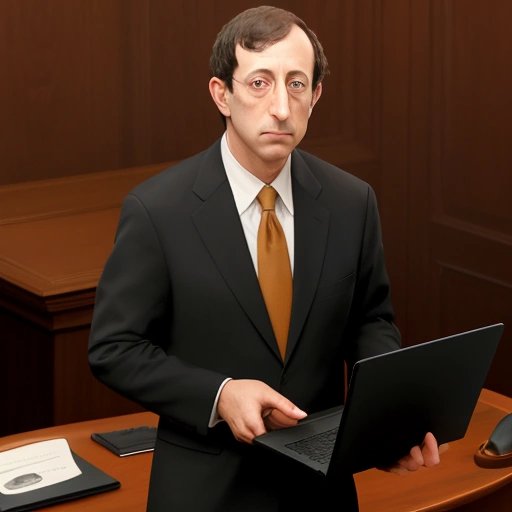Disclaimer: The following article is a work of satire and should not be taken seriously. It is purely fictional and does not depict any real events or individuals.
It seems that every day brings a new controversy in the world of social media, but none have been quite as shocking as the recent rise of National Suicide Day. This disturbing trend has taken the internet by storm, with over 4 million people already pledging to end their lives on June 29, 2037. Naturally, this raises a crucial question: can the families of these individuals sue the heads of social media for suggesting such a horrifying idea?
To shed light on this legal conundrum, we turn to Attorney Abe Rothman from the esteemed law firm Edelson, Rothman, and Stuart. Known for his expertise in navigating the murky waters of digital law, Rothman brings a unique perspective to this distressing issue.
In a recent interview, Rothman delved into the intricacies of the potential lawsuits against social media titans. He first acknowledged that, while the idea of National Suicide Day is undeniably disturbing, the liability of social media platforms for its emergence is questionable at best.
"Social media platforms are just that, platforms," Rothman stated. "They provide a space for users to share their thoughts and ideas. While some may argue that these platforms have a responsibility to moderate content and prevent harmful trends, it is ultimately up to the users themselves to decide how they engage with these ideas."
Rothman further emphasized that holding the heads of social media accountable for the actions of their users would set a dangerous precedent. "It would be akin to suing the manufacturer of a knife because someone used it to commit a crime. The responsibility lies with the individual and not the platform itself."
While the rise of National Suicide Day is undoubtedly alarming, Rothman emphasized the importance of personal responsibility and mental health in these discussions. "It is crucial that we focus on addressing the underlying issues that lead to such trends, such as mental health support and accessible resources. Blaming social media may provide a scapegoat, but it does little to solve the larger problem."
Rothman concluded the interview by urging individuals and families affected by this trend to seek help and support. "We must come together as a society to tackle the root causes of these distressing trends. Mental health is of utmost importance, and it is crucial that we provide the necessary resources and support to those who need it."
So, while the idea of suing social media titans may be tempting in the face of National Suicide Day, it appears that the legal path may be fraught with challenges. It is essential that we turn our attention to fostering a society that prioritizes mental health and offers the necessary resources to those in need.
Let us hope that, in the coming years, we can shift our focus from such dark and distressing trends and work towards a future where mental health is treated with the urgency and compassion it deserves.


